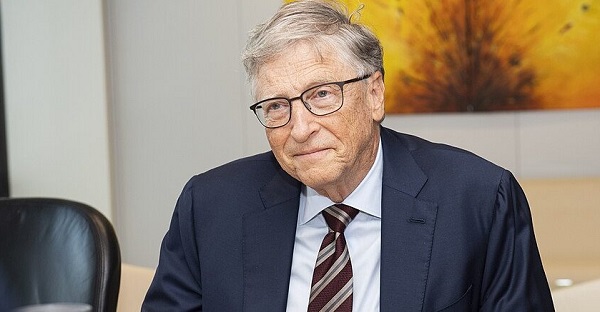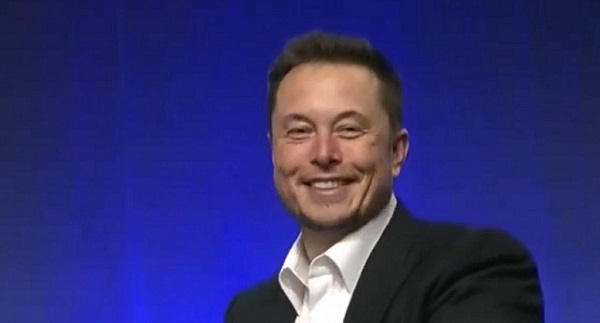Business
Ottawa should stop using misleading debt measure to justify deficits

From the Fraser Institute
By Jake Fuss and Grady Munro
Based on the rhetoric, the Carney government’s first budget was a “transformative” new plan that will meet and overcome the “generational” challenges facing Canada. Of course, in reality this budget is nothing new, and delivers the same approach to fiscal and economic policy that has been tried and failed for the last decade.
First, let’s dispel the idea that the Carney government plans to manage its finances any differently than its predecessor. According to the budget, the Carney government plans to spend more, borrow more, and accumulate more debt than the Trudeau government had planned. Keep in mind, the Trudeau government was known for its recklessly high spending, borrowing and debt accumulation.
While the Carney government has tried to use different rhetoric and a new accounting framework to obscure this continued fiscal mismanagement, it’s also relied on an overused and misleading talking point about Canada’s debt as justification for higher spending and continued deficits. The talking point goes something like, “Canada has the lowest net debt-to-GDP ratio in the G7” and this “strong fiscal position” gives the government the “space” to spend more and run larger deficits.
Technically, the government is correct—Canada’s net debt (total debt minus financial assets) is the lowest among G7 countries (which include France, Germany, Italy, Japan, the United Kingdom and the United States) when measured as a share of the overall economy (GDP). The latest estimates put Canada’s net debt at 13 per cent of GDP, while net debt in the next lowest country (Germany) is 49 per cent of GDP.
But here’s the problem. This measure assumes Canada can use all of its financial assets to offset debt—which is not the case.
When economists measure Canada’s net debt, they include the assets of the Canada Pension Plan (CPP) and the Quebec Pension Plan (QPP), which were valued at a combined $890 billion as of mid-2025. But obviously Canada cannot use CPP and QPP assets to pay off government debt without compromising the benefits of current and future pensioners. And we’re one of the only industrialized countries where pension assets are accounted in such a way that it reduces net debt. Simply put, by falsely assuming CPP and QPP assets could pay off debt, Canada appears to have a stronger fiscal position than is actually the case.
A more accurate measure of Canada’s indebtedness is to look at the total level of debt.
Based on the latest estimates, Canada’s total debt (as a share of the economy) ranked 5th-highest among G7 countries at 113 per cent of GDP. That’s higher than the total debt burden in the U.K. (103 per cent) and Germany (64 per cent), and close behind France (117 per cent). And over the last decade Canada’s total debt burden has grown faster than any other G7 country, rising by 25 percentage points. Next closest, France, grew by 17 percentage points. Keep in mind, G7 countries are already among the most indebted, and continue to take on some of the most debt, in the industrialized world.
In other words, looking at Canada’s total debt burden reveals a much weaker fiscal position than the government claims, and one that will likely only get worse under the Carney government.
Prior to the budget, Prime Minister Mark Carney promised Canadians he will “always be straight about the challenges we face and the choices that we must make.” If he wants to keep that promise, his government must stop using a misleading measure of Canada’s indebtedness to justify high spending and persistent deficits.
Business
Bill Gates Gets Mugged By Reality


From the Daily Caller News Foundation
You’ve probably heard by now the blockbuster news that Microsoft founder Bill Gates, one of the richest people to ever walk the planet, has had a change of heart on climate change.
For several decades Gates poured billions of dollars into the climate industrial complex.
Some conservatives have sniffed that Bill Gates has shifted his position on climate change because he and Microsoft have invested heavily in energy intensive data centers.
AI and robotics will triple our electric power needs over the next 15 years. And you can’t get that from windmills.
What Bill Gates has done is courageous and praiseworthy. It’s not many people of his stature that will admit that they were wrong. Al Gore certainly hasn’t. My wife says I never do.
Although I’ve only once met Bill Gates, I’ve read his latest statements on global warming. He still endorses the need for communal action (which won’t work), but he has sensibly disassociated himself from the increasingly radical and economically destructive dictates from the green movement. For that, the left has tossed him out of their tent as a “traitor.”
I wish to highlight several critical insights that should be the starting point for constructive debate that every clear-minded thinker on either side of the issue should embrace.
(1) It’s time to put human welfare at the center of our climate policies. This includes improving agriculture and health in poor countries.
(2) Countries should be encouraged to grow their economies even if that means a reliance on fossil fuels like natural gas. Economic growth is essential to human progress.
(3) Although climate change will hurt poor people, for the vast majority of them it will not be the only or even the biggest threat to their lives and welfare. The biggest problems are poverty and disease.
I would add to these wise declarations two inconvenient truths: First: the solution to changing temperatures and weather patterns is technological progress. A far fewer percentage of people die of severe weather events today than 50 or 100 or 1,000 years ago.
Second, energy is the master resource and to deny people reliable and affordable energy is to keep them poor and vulnerable – and this is inhumane.
If Bill Gates were to start directing even a small fraction of his foundation funds to ensuring everyone on the planet has access to electric power and safe drinking water, it would do more for humanity than all of the hundreds of billions that governments and foundations have devoted to climate programs that have failed to change the globe’s temperature.
Stephen Moore is a co-founder of Unleash Prosperity and a former Trump senior economic advisor.
Automotive
Elon Musk Poised To Become World’s First Trillionaire After Shareholder Vote


From the Daily Caller News Foundation
At Tesla’s Austin headquarters, investors backed Musk’s 12-step plan that ties his potential trillion-dollar payout to a series of aggressive financial and operational milestones, including raising the company’s valuation from roughly $1.4 trillion to $8.5 trillion and selling one million humanoid robots within a decade. Musk hailed the outcome as a turning point for Tesla’s future.
“What we’re about to embark upon is not merely a new chapter of the future of Tesla but a whole new book,” Musk said, as The New York Times reported.
Dear Readers:
As a nonprofit, we are dependent on the generosity of our readers.
Please consider making a small donation of any amount here.
Thank you!
The decision cements investor confidence in Musk’s “moonshot” management style and reinforces the belief that Tesla’s success depends heavily on its founder and his leadership.
Tesla Annual meeting starting now
https://t.co/j1KHf3k6ch— Elon Musk (@elonmusk) November 6, 2025
“Those who claim the plan is ‘too large’ ignore the scale of ambition that has historically defined Tesla’s trajectory,” the Florida State Board of Administration said in a securities filing describing why it voted for Mr. Musk’s pay plan. “A company that went from near bankruptcy to global leadership in E.V.s and clean energy under similar frameworks has earned the right to use incentive models that reward moonshot performance.”
Investors like Ark Invest CEO Cathie Wood defended Tesla’s decision, saying the plan aligns shareholder rewards with company performance.
“I do not understand why investors are voting against Elon’s pay package when they and their clients would benefit enormously if he and his incredible team meet such high goals,” Wood wrote on X.
Norway’s sovereign wealth fund, Norges Bank Investment Management — one of Tesla’s largest shareholders — broke ranks, however, and voted against the pay plan, saying that the package was excessive.
“While we appreciate the significant value created under Mr. Musk’s visionary role, we are concerned about the total size of the award, dilution, and lack of mitigation of key person risk,” the firm said.
The vote comes months after Musk wrapped up his short-lived government role under President Donald Trump. In February, Musk and his Department of Government Efficiency (DOGE) team sparked a firestorm when they announced plans to eliminate the U.S. Agency for International Development, drawing backlash from Democrats and prompting protests targeting Musk and his companies, including Tesla.
Back in May, Musk announced that his “scheduled time” leading DOGE had ended.
-

 Business2 days ago
Business2 days agoCarney budget continues misguided ‘Build Canada Homes’ approach
-

 Business2 days ago
Business2 days agoCarney budget doubles down on Trudeau-era policies
-

 Business1 day ago
Business1 day agoBill Gates Gets Mugged By Reality
-

 COVID-192 days ago
COVID-192 days agoCrown still working to put Lich and Barber in jail
-

 Censorship Industrial Complex22 hours ago
Censorship Industrial Complex22 hours agoSchool Cannot Force Students To Use Preferred Pronouns, US Federal Court Rules
-

 Alberta22 hours ago
Alberta22 hours agoAlberta Announces Members of Class Size and Complexity Committee
-

 Alberta21 hours ago
Alberta21 hours agoTell the Province what you think about 120 km/h speed limit on divided highways
-

 Business2 days ago
Business2 days agoHere’s what pundits and analysts get wrong about the Carney government’s first budget











